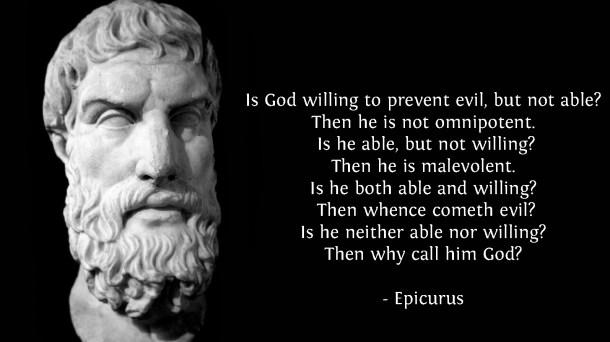Here’s another post inspired by Alom Shaha’s outstanding ‘Young Atheist’s Handbook’.
I hope that these will help a few to consider donating to the campaign to get copies of the book in all English and Welsh secondary schools, the website for which can be found here: http://yah4schools.org.uk/
___

“I think the idea that it is immoral not to believe in God is perhaps the most insidious one that parents encourage to take root in the minds of young children. It is what makes it so difficult for people to question the existence of God once they have acquired the ability to think and reason for themselves…” – Alom Shaha, The Young Atheist’s Handbook.
It’s a very common theist standpoint, pairing off immorality with godlessness. In most cases, it’s probably nothing more than an innocent assumption. In others, it may well be tactical and malicious… But one thing’s for certain: it’s simply wrong.
The claim that morality stems from any one of the many ‘good books’ is easily refuted. Genuinely nice theists (that’s quite a lot of them) are that way because – although they may not admit it – they outright reject some of their scripture’s supposedly ‘outdated’ specifics. And ‘outdated’, of course, is how they justify it when pressed – “those bits [of the definitive word of an all-knowing, all-good God?] need to be put into the context of the time”, you’ll hear them say.
What they’re doing, in effect, is selecting the source material for content which reinforces their own innate ‘goodness’, and nothing more, before then perversely crediting it for their own nature. Because, if they were to take it all in (which is hard, given the prevalence of contradiction), they would not be nice people*.
The argument also implies, among other things, that perhaps the only thing in the way of sensible believers being multiple murder-rapists is a book – and I’m sure the situation isn’t that dire. On that, most religious people, I like to think, would agree.
It follows, then, that a decent person who leaves faith behind will still be ‘a decent person’ after the transition (unless other factors are at play). There’s really no reason for a drastic negative change in personality, so the demonisation and even criminalisation of de-conversion is certainly tragic, especially when it happens to be from a person’s own family.
I don’t blame people for staying quiet about (or indeed outright casting aside) the doubt I know they think and feel in the more conservative, frankly backward highly religiously-dominated countries of the world when being open about it is dangerous. Common charges of ‘blasphemy’ or ‘apostasy’ – two utterly harmless non-crimes – sadden me greatly, and are perhaps some of the biggest personal drivers for my (safe, here in the UK) vocal Humanism.
In far too many places, such accusations carry a lot of weight. Add to the all of the worldly suffering a non-criminal ‘defendant’ is likely to experience at the hands of the hatefully deluded a perhaps genuine fear of literally burning for eternity and it’s a nasty, nasty mix. It’s torture, in every possible way.
Of course, what kind of moral God would let well-meaning people experience such Earthly suffering? And what kind of moral God would approve of any kind of eternal punishment for finite ‘sins’, for that matter?
I’m sure you’ve all heard of the famous ‘Problem of Evil’:

The logic’s sound, I feel. Indeed, why call ‘him’ God?
See, when people come to this sort of conclusion and are themselves branded ‘evil’, it’s more than a little ironic. The God they are rejecting is, as Richard Dawkins has previously named ‘the God of the Old Testament’ (although it applies to any conceived God-like ‘higher power’ due to the ‘PoE’), easily “the most unpleasant character in all fiction: jealous and proud of it; a petty, unjust, unforgiving control-freak; a vindictive, bloodthirsty ethnic cleanser; a misogynistic, homophobic, racist, infanticidal, genocidal, filicidal, pestilential, megalomaniacal, sadomasochistic, capriciously malevolent bully“, so it really is unfair to accuse the non-believer of getting anywhere close to being as bad an entity by default.
And, since this sort of highly analytical conclusion on the nature of God isn’t really open to very young, impressionable, emotional minds I strongly second the sentiment of Alom’s quote. It really is ‘insidious’ to suggest to small children that non-belief is bad enough to deserve hell-fire (or to teach about a literal hell-fire at all, for that matter), as it really does surround the concept in a fearful taboo which only has the potential to cause suffering, however minor, when the children grow up.
Maybe it is, again, unintentional. Or maybe, in the case of some parents, such baseless threats are a good way of keeping a child’s mind in line, and they know it.
Either way, it’s wrong – and not just in the factual sense implied at the start of this post.
Carnun.
___
*Unless, of course, ‘nice’ is defined by the parameters the books themselves set, which I highly doubt places it anywhere close to the definition of the word known by any sort of global human rights-related standard.
_____
The ‘Young Atheist’s Handbook 4 Schools’ campaign: http://yah4schools.org.uk

